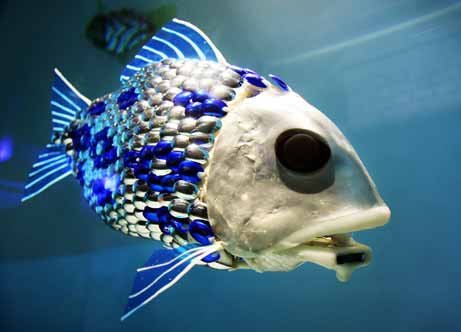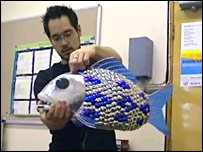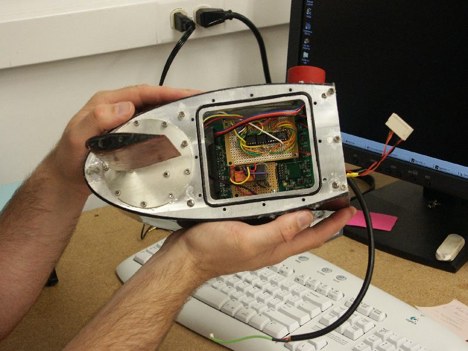

A researcher has developed the first robo-fish Wanda that moves like its natural counterparts and navigates underwater, conducting inspections within confined spaces.
Researcher Scott McGovern of the University of Wollongong created Wanda (wireless aquatic navigator for detection and analysis) seeking out targeted objects. It propels itself forward by an active flexible joint tail fin activated through polymer artificial muscles.
The biggest advantage of this material is the ease with which it mimics the tail fin motion of a fish, said McGovern.
Wanda has more mobile and flexible previous sensing systems; fish-like swimming motions mean better manoeuvrability than conventional propeller driven devices, making such devices ideal for underwater inspections.
'Other advantages of conducting polymers are that they are low voltage, light weight and self-contained. Also as there are no complex moving parts, they have the capacity to be more robust than the traditional materials used,' he said.
__________________[center]

 [center]
[center]

